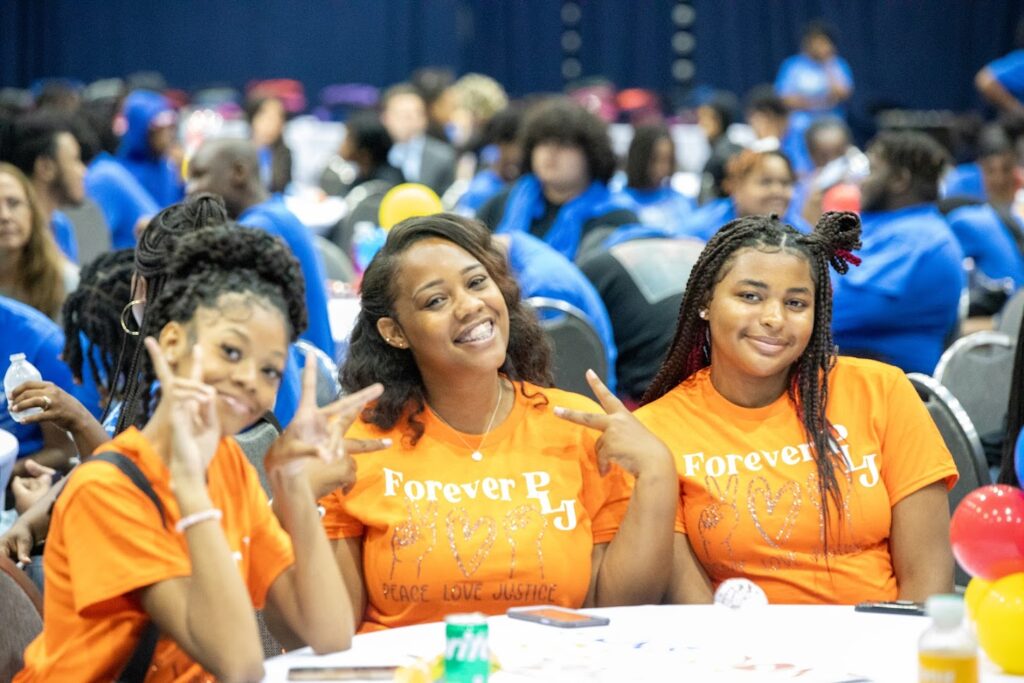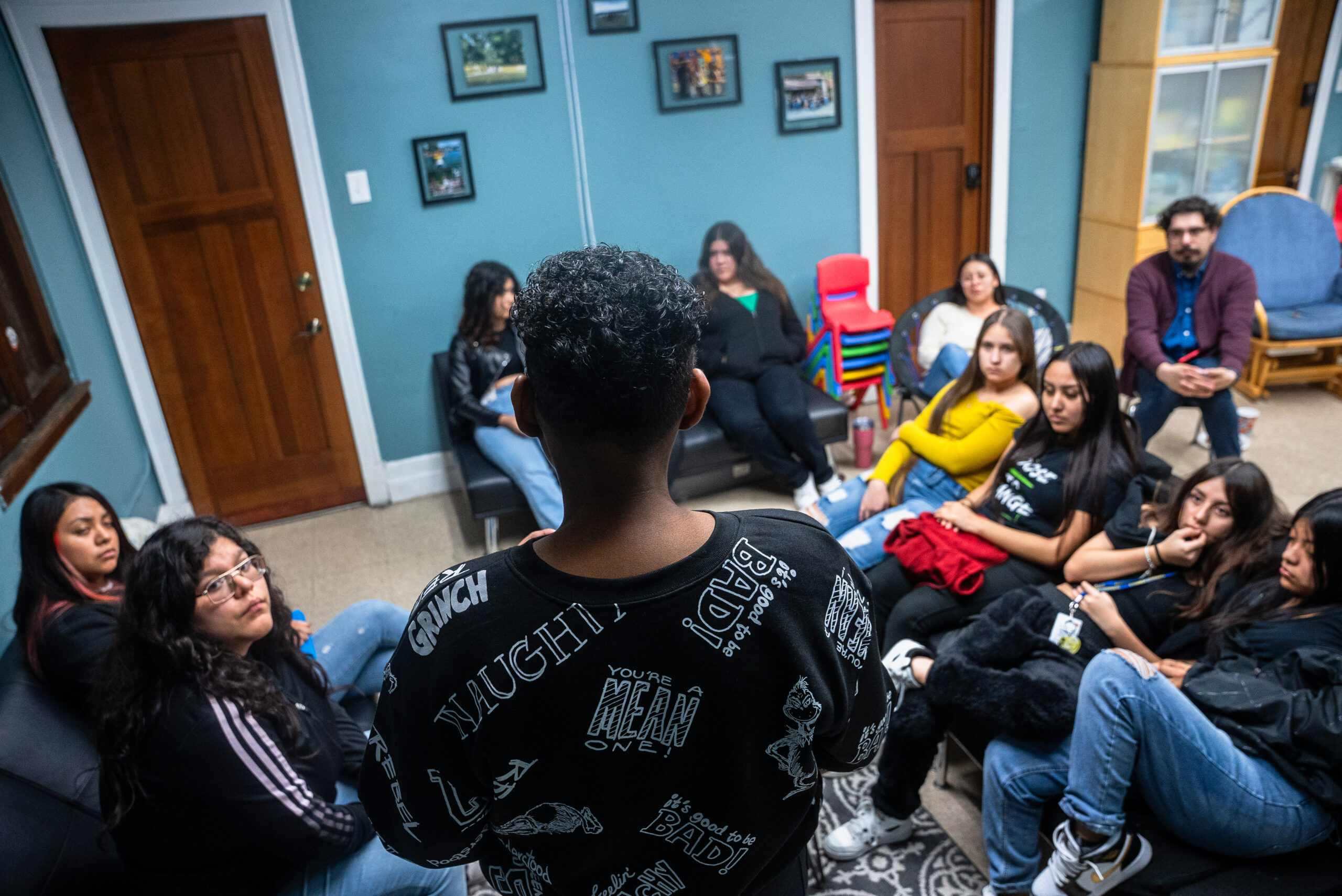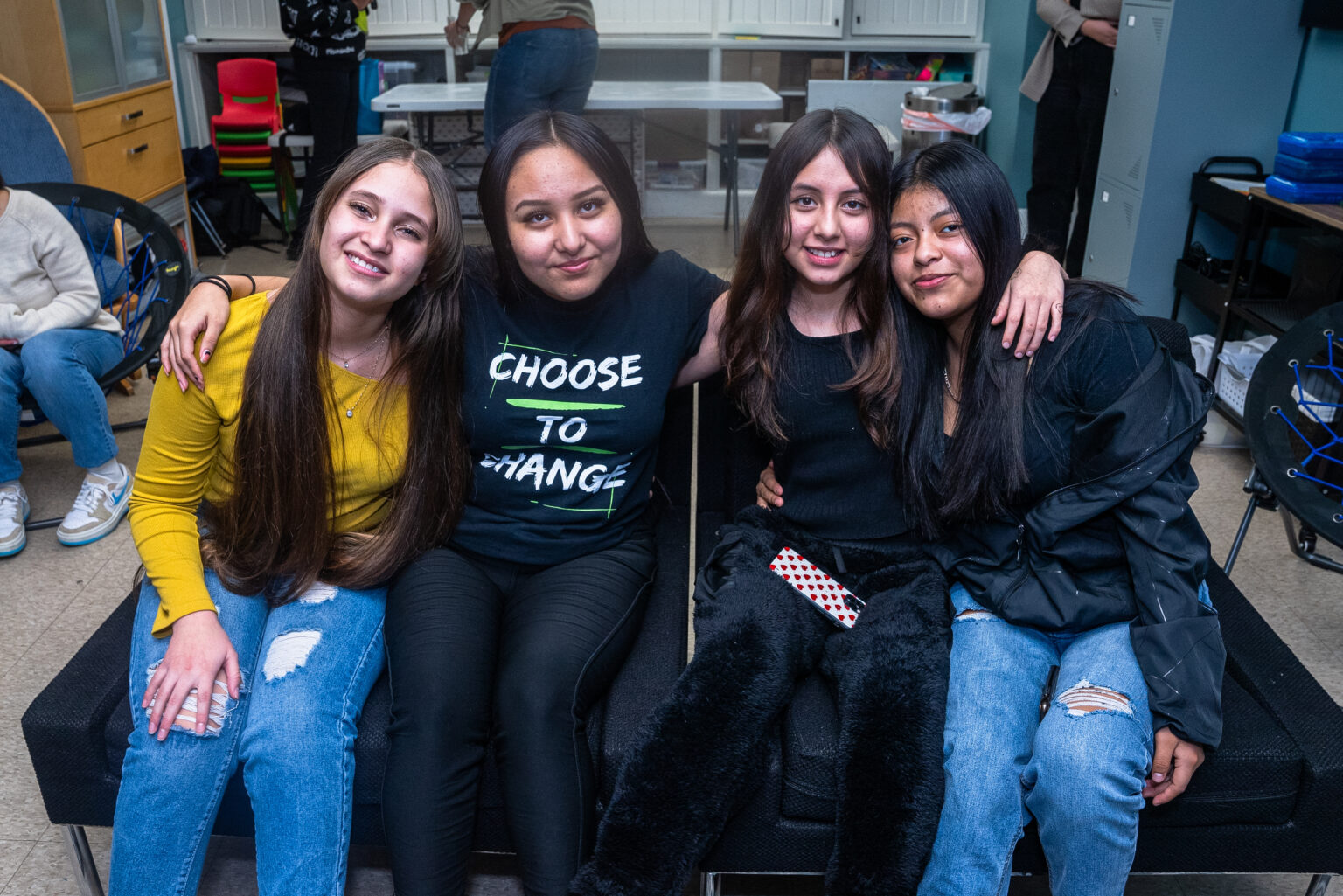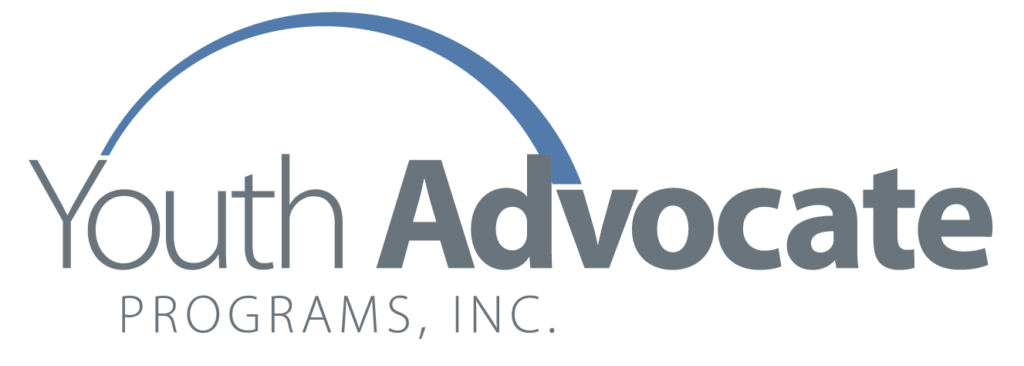Mentoring and Counseling Interventions
Choose to Change®


Longer-Term Impacts of a Youth Behavioral Science Intervention: Experimental Evidence from Chicago
The latest results from a study of Choose to Change® (C2C®), a partnership between nonprofits Brightpoint and Youth Advocate Programs, Inc. (YAP)™ shows that the program is highly effective in reducing violence in the short-run and reduces overall engagement with the criminal justice system for youth up to four years after the start of the program. The program leads to moderate increases in school engagement as well. These longer-term impacts stand out as particularly exceptional in the social sciences.
The Choose to Change® (C2C®) program combines trauma-informed therapy with wraparound supports and aims to reduce youth violence while improving educational outcomes outside of an institutional setting.
Challenge
Gun violence disproportionately affects youth and young adults in Chicago’s historically under-resourced neighborhoods. Frequent exposure to violence and trauma can impact youth’s mental health, emotional development, and academic engagement. Ensuring young people in Chicago have access to effective support services such as cognitive behavioral therapy (CBT) can be challenging when youth are disengaging from the same institutions likely to provide these supports, such as schools.
Opportunity
C2C® seeks to connect with an underserved population of youth who may be facing considerable challenges, including school truancy or prior criminal justice engagement, and provide a comprehensive set of supports outside of school that seeks to address barriers and meet basic needs while also building social-emotional skills. Developed by Brightpoint (formerly Children’s Home & Aid) and Youth Advocate Programs, Inc. (YAP)™ in 2015, C2C® provides trauma-informed cognitive behavioral therapy (CBT) and intensive mentoring to youth in Chicago’s south and west sides. The Crime Lab and the Education Lab conducted a large-scale randomized controlled trial of C2C® to determine if C2C® can effectively reduce violence and criminal justice involvement overall and increase education engagement.
Solution
The study finds that C2C® can effectively and sustainably reduce violence engagement and the likelihood of being arrested. Two years after the program, C2C® reduces the likelihood of youth being arrested for a violent crime by 39 percent. The effects of C2C® in reducing any arrest lasts, participants were 21 percent less likely to face an arrest up to four years after the start of the program.
Project overview
In response to a 2015 design competition, as part of an initiative launched by the University of Chicago Crime Lab and Education Lab to crowdsource youth violence prevention interventions from across the city, Brightpoint (formerly Children’s Home & Aid) and Youth Advocate Programs, Inc. (YAP) jointly created C2C®: Your Mind, Your Game. C2C® is a six-month intervention offering youth intensive wraparound and mentoring services that focus on addressing each young person’s specific needs, along with trauma-informed CBT that helps youth process previous trauma and develop a new set of decision-making tools.
Youth in the C2C® program receive intensive mentoring from advocates from YAP. Advocates are professionally trained mentors who come from backgrounds and communities similar to those of the youth they mentor. This allows them to develop strong personal relationships, which are crucial for engaging youth in all aspects of the program. In addition to the mentoring relationship, Advocates provide wraparound support for youth and their families/caregivers in the participants’ homes and communities. This includes a broad spectrum of services, from helping youth obtain basic necessities such as food and housing to motivation and direction on larger goals, such as employment and college. On average, Advocates dedicate eight hours a week to supporting a young person.
After youth receive about a month of wraparound supports, the mentor brings the youth to weekly group trauma-informed CBT sessions facilitated by clinically trained therapists from Brightpoint. The CBT sessions draw from the SPARCS (Structured Psychotherapy for Adolescents Responding to Chronic Stress) curriculum, which help youth regulate their emotions and understand how past traumatic experiences or chronic stress can impact their thinking and behavior. Through exercises and conversation, youth learn to challenge unhelpful thinking, develop more resilient coping mechanisms to address stressors and build problem-solving and communication skills.
Outside of group sessions, mentors spend time doing fun social activities with the youth, experiencing new parts of the city, and modeling the skills and tools the youth learn in the CBT sessions. This allows for “learning by doing” and creates opportunities for youth to develop new habits that will benefit them after the program ends.
Years Active
2015 – present
Project Leads
Nour Abdul-Razzak
Research Director, University of Chicago Inclusive Economy Lab

Monica Bhatt
Senior Research Director

Heather Bland
Research Manager

Brandon Domash
Analytics Manager

Kelly Hallberg
Scientific Director, University of Chicago Inclusive Economy Lab

Cristobal Pinto Poehls
Analytics Manager

Kim Smith
Director of National Programs and External Engagement


Choose to Change® (C2C®) Program Guide
This program guide is intended for community-based organizations working to fill gaps in services and reach an underserved population of youth impacted by violence and trauma.
The Research Study
In 2015, researchers at the Crime Lab partnered with YAP and Brightpoint to design and implement a large-scale randomized controlled trial (RCT) of the C2C® program to evaluate the program’s impact on criminal justice engagement and academic outcomes. Between 2015 and 2019, 2,074 eligible youth were identified for the program and were referred from community service providers and schools from the south and west neighborhoods of Chicago. Youth who are actively affiliated with a gang or at risk of engaging, on juvenile probation, previously found guilty of weapons offenses, disruptive in school through chronic truancy, serious misconduct and/or frequent suspension, or the direct victim or witness to traumatic violence are eligible for C2C®.
There were not enough program spots for all candidates to be served, so a lottery was used to determine who was offered C2C® versus services that are normally available. Since the only difference, on average, between the youth with and without a C2C® offer is the C2C® offer, comparing the outcomes of youth in both groups isolates the impact of C2C®.
Who C2C® Serves
C2C® was able to successfully engage youth facing many intersecting challenges, such as prior criminal justice involvement and school truancy. Youth in the study were, on average, almost 16 years old and in the first few years of high school. About 95 percent of the youth in the study are Black and almost all youth qualify for free or reduced lunch. Prior to program referral, 50 percent of youth had been a victim of a crime, 35 percent had a prior arrest, and 30 percent were disengaged from school, with two-thirds of the sample falling into at least one of these risk factors. Compared to the broader Chicago Public Schools (CPS) population, C2C® youth are much more likely to be previously victimized and previously arrested.
C2C® participants stay engaged. Despite facing many barriers to participating, 62 percent of youth offered C2C® participated in programming (defined as attending at least one therapy session and/or five hours of mentoring). Even among youth who are marginally or completely disconnected to school, we observe a nearly 50 percent take-up rate. Conditional on being a C2C® participant, C2C® youth attended, on average, nine CBT sessions and received about 176 hours of wraparound services over the course of the program. This high level of engagement is especially notable given many of the young people in the study had only a tenuous connection with school when they were recruited for participation.

Choose to Change® provides some of our most vulnerable youth with the human connection and skills that can build their cognitive reserve and change the trajectory of their lives. We are focused on integrating social-emotional lessons into the daily student learning experience within CPS and are grateful for this programming that gives youth extra support and the second chance that everyone deserves.
Former CEO of Chicago Public Schools

These results indicate we have found a sustained way to interrupt the cycles of violence and trauma that our young people experience. This research shows that youth are making safer and healthier choices for themselves and are part of making their own communities safer and healthier while in C2C® and for years after participating.
President & CEO of Brightpoint

The Crime Lab’s findings reinforce what we already know: C2C® works. The study provides evidence that blending cognitive behavioral therapy and intensive mentoring and individual and family support is an effective model for supporting young people and producing life-changing outcomes.
CEO of YAP

Brightpoint and YAP are exemplars in the nonprofit sector for their commitment to generating the highest standard of evidence. With this research, they are supporting the entire field with data about how we can best help young people harmed by the twin challenges of gun violence and justice system involvement. This evidence adds to the mounting body of evidence that even well into adolescence and young adulthood, it is not too late to ensure young people avoid violence and justice system involvement. But we need to follow the data if we actually want young people to thrive.
Crime Lab and Education Lab Founding Executive Director

Untapped Levers for Reducing Gun Violence: The Impact of Behavioral Science Programs
The Crime Lab hosted a webinar that explored our latest findings on behavioral science interventions and their effectiveness in reducing gun violence.
Summary of Research Findings
To understand how the program impacts contact with the criminal justice system, we use administrative Chicago Police Department arrest data.
- C2C® participants were substantially less likely to be arrested in the 4 years after randomization. We find large and statistically significant effects on the likelihood of any arrest, but no significant impact on the number of arrests overall. Two years post randomization, C2C® reduces the likelihood of any arrest by about 10 percentage points (a 31 percent reduction compared to the control group), a statistically significant decrease. Importantly we find this reduction in having any arrest persists up to four years after randomization (a 21 percent reduction).
- Breaking these arrests down by the charges associated with them, we find large reductions in violent offense arrests. During the course of programming (six months), C2C® reduces both the number of violent arrests and the likelihood of arrest for a violent offense by 47 percent. This corresponds to about four fewer arrests for violence per 100 youth. The violent reductions persist up until about two years post randomization, and we see C2C® reducing the likelihood of any arrest for violence by about 39 percent. These impacts are statistically significant even after adjusting to reduce the risk of false positive results.
- To better understand the impacts of C2C®, given an arrest is a proxy for criminal behavior, we create a supervised machine learning algorithm from arrest narratives that determines if an arrest was initiated more or less at the discretion of police. We find that the program’s impacts are concentrated in arrests where officers have less discretion in initiating contact, while having little impact on more discretionary contact arrests (e.g. a young person exhibiting “suspicious” behavior). This analysis suggests the effects of the program are being driven by a reduction in actual youth offending behavior rather than by avoiding police contact.
We also used Chicago Public Schools data to understand the impact of the program on youth education outcomes.
- C2C® moderately increases school engagement, as measured by a composite index of six education outcomes that includes GPA, misconduct, and school mobility).
- We find that being offered C2C® leads to an increase of 0.03 and 0.05 standard deviations in this school engagement index in the first and second semesters post-randomization, respectively.
- Looking at the effects on the individual components, we find that most of this is driven by positive behavior change in school (e.g. a reduction in the number of misconducts) rather than through improved academic performance (e.g. GPA).
- While we don’t see an increase in the likelihood the average C2C® participant graduates from high school, the program appears to benefit specific subgroups in different ways. For students who were already engaged in school before participating in C2C®, the program increases both behavioral outcomes and academic engagement in school (e.g. increased attendance, GPA, and high school graduation). In contrast, for students who were already disengaging from school at baseline, positive program effects were limited to improved behavioral engagement (predominantly via reduced behavioral incidences and reduced school mobility) and the program significantly decreases high school graduation.
C2C® is also cost-effective, with reductions in criminal justice involvement generating savings that begin to offset the program’s costs within two years.
This study finds that C2C®, a youth behavioral health intervention in Chicago, can effectively engage harder-to-reach youth, substantially reduce violence involvement, and reduce the probability of arrest in the short and longer term. In the context of other successful CBT-based programs in Chicago, C2C® highlights the possibility of engaging a harder-to-reach population of youth outside of school without having to wait until someone reaches adulthood or is detained.
These results highlight the promise of behavioral health interventions in
developing meaningful and sustained impacts for youth by providing them with tools to navigate challenging environments that are often plagued with a lack of safety and economic opportunity. The longer-term impacts of this program are especially promising as many youth programs see fade-out shortly after the program ends.
This study received support from the AbbVie Foundation, Chicago Sports Alliance (comprised of the Chicago Bears, Chicago Blackhawks, Chicago Bulls, Chicago Cubs, and Chicago White Sox), Crown Family Philanthropies, National Institutes of Health, Get In Chicago, the John D. and Catherine T. MacArthur Foundation, National Science Foundation, Pritzker Pucker Family Foundation, and Robert R. McCormick Foundation.
Research reported in this publication was additionally supported by the Centers for Disease Control (CDC) National Center for Injury Prevention and Control under award number 1-R-01-CE002971 and by the National Institutes of Health under award number 5P01HD076816. Nour Abdul-Razzak gratefully acknowledges support from the National Science Foundation (NSF) Graduate Research Fellowship Program. The content is solely the responsibility of the authors and does not necessarily represent the official views of the CDC, the National Institutes of Health, NSF, other funders, data providers, or implementing agencies.
Project Partners
Brightpoint

Youth Advocate Programs, Inc.

Chicago Public Schools
Related News
How to End the Cycle of Violence in Chicago
Public policy professor and New York Times contributor David L. Kirp discusses the Crime Lab and Education Lab’s evaluation of Choose to Change (C2C), a program implemented by Youth Advocate Programs (YAP) and Brightpoint (formerly Children’s Home & Aid) that provides mentoring and therapy to disrupt the cycle of violence in Chicago.

Choose to Change program supporting high-risk CPS students expands to Bronzeville, Humboldt Park
The Choose to Change program’s expansion to Bronzeville and Humboldt Park is highlighted in this article.
Centering Youth in Community Violence Interventions as Part of a Comprehensive Approach to Countering Gun Violence
Preliminary findings from our evaluation of the Choose to Change program are referenced in a this Center for American Progress article authored by Terrell Thomas and Rachael Eisenberg.

